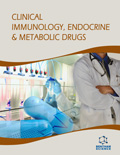Abstract
Cystic fibrosis pulmonary disease is caused by dysfunctional electrolytes transport that severely impacts the lung environment. Abnormal chloride and carbonate transport by the CFTR favours recurrent bacterial infections which in turn stimulate an immune response that, while inadequate to eradicate infection, contributes to lung failure. Many different cell types are affected by dysfunctional CFTR including epithelial cells and macrophages; the latter being involved in the elimination of foreign particles and microbes and orchestration of the inflammatory response. Sputa and BAL of CF patients are characterized by large amount of proinflammatory mediators, ROS and proteases that contribute to lung failure. Macrophages express CFTR and show functional deficiencies at different levels. First, defective intracellular bacteria killing has been reported in the murine model and in humans; disproportional inflammatory response resulting in high level of cytokine production and defective removal of cellular debris has been documented as well. Microbicidal deficiency against CF pathogens such as Burkholderia cenocepacia or Pseudomonas aeruginosa was ascribed to defective autophagy and phagolysosome pH, respectively. Looking at the causes of inflammation, a hyper responsiveness to LPS has been ascribed to defective AKT/miR-199a-5p/CAV1 pathway governing the feedback loop that shuts down TLR4 signalling. Moreover, abnormal activation of the IRE1a/XBP-1 arm of the unfolded protein response was shown to contribute to inflammation. Overall it appears that bacteria clearance and hyperinflammation may be improved by targeting CF macrophage deficiencies.
Keywords: Macrophages, hyper-inflammation, Pseudomonas aeruginosa, microbial killing, reactive oxygen species, autophagy, celecoxib, roscovitine.
Graphical Abstract
 16
16

